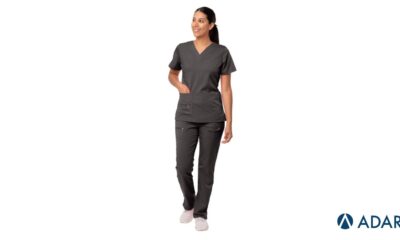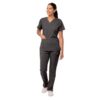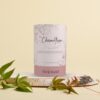Introduction:
Acne is a common skin condition that affects people of all ages. One effective way to manage Acne is using face masks to target breakouts, inflammation, and excess oil.
Face masks can provide targeted relief for acne-prone skin, helping to reduce inflammation, clear clogged pores, and even prevent future breakouts.
However, knowing which mask is right for you can be challenging with so many different products and ingredients available. This guide will explore the benefits of face masks for Acne, the most effective types, and how to use them as part of a comprehensive skincare routine.
Types of Face Masks for Acne:
a) Clay Masks
- Absorbs excess oil and unclogs pores.
- It is ideal for oily and combination skin types.
- Common ingredients: Bentonite clay and kaolin clay.
b) Charcoal Masks
- Draws out impurities and deep-cleans pores.
- It helps remove blackheads and reduce breakouts.
- Best suited for oily and acne-prone skin.
- Key ingredient: Activated charcoal.
c) Hydrating Masks with Anti-Acne Properties
- Provides moisture while treating Acne.
- Suitable for combination and sensitive skin.
- Common ingredients: Aloe vera, honey, hyaluronic acid.
d) Exfoliating Masks
- Removes dead skin cells and unclogs pores.
- Encourages skin cell renewal.
- Key ingredients: Salicylic acid, glycolic acid, fruit enzymes.
e) DIY Natural Masks
- Budget-friendly and free from harsh chemicals.
- Helps in soothing inflammation and controlling breakouts.
- Popular ingredients: Turmeric, yoghurt, tea tree oil, oatmeal, Aloe vera etc.
Face masks for Acne mainly target the following causes:
- Excess Oil Production: Certain masks absorb excess sebum to prevent clogged pores.
- Bacterial Growth: Masks containing antibacterial ingredients can help reduce the acne-causing bacteria on the skin.
- Skin Inflammation: Many masks contain anti-inflammatory ingredients that calm the redness and irritation associated with Acne.
- Dead Skin Build-Up: Exfoliating masks help remove dead skin cells.
How to Use Face Masks for Acne Effectively:
For more effective results, face masks should be used in the proper ways as follows:
- Cleanse Before Applying: Always wash your face thoroughly before applying a face mask. This ensures that your skin is free from dirt, oil, and makeup, allowing the mask to work more effectively.
- Patch Test First: If you’re using a new product, do a patch test on a small area of your skin to ensure you don’t have an adverse reaction.
- Don’t Overuse Masks: Limit the use of acne masks to 1-2 times per week to avoid over-drying or irritating your skin.
- Follow Up with Moisturizer: After using a face mask, apply a gentle moisturiser to help restore hydration and balance your skin.
- Be Consistent: Consistency is key in acne treatment. While face masks can provide quick relief, they work best when used as part of a complete skincare routine.
Conclusion:
Face masks for Acne can be an effective, accessible way to improve the appearance of your skin. Selecting the right ingredients for your skin type and using them properly and regularly shows visible improvements in Acne. If you’re unsure which mask is best for your skin, consult a dermatologist for personalised recommendations.
refrences
https://www.healthline.com/health/homemade-face-masks
https://www.dermatologistschoice.com/blogs/news/which-face-mask-is-best-for-breakouts?






























